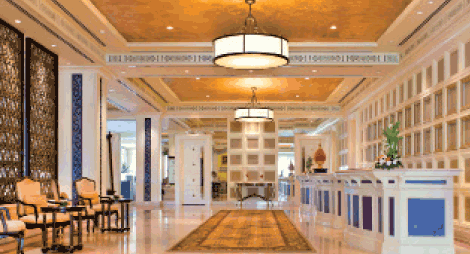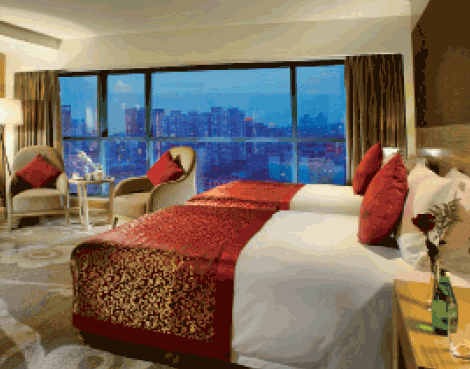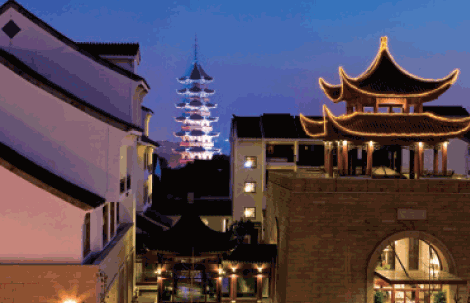To kick off our new series, Alisha Haridasani introduces three Asian hotel brands that offer value and a local touch that sets them apart from the big international chains
With Asia set to become one of the largest travel markets in the world, it is only logical that regional hotel brands should flourish. Their hotels offer not only all the trimmings you’d expect from a quality establishment, but also local knowledge and distinctive Asian flavour in all their elements, from the décor to food and service.
Dusit International
Who are they? This Thai hotel group was the first of its kind when its inaugural hotel – the Dusit Thani Bangkok – was opened back in 1970 by chairperson and founder Thanpuying Chanut Piyaoui. Her aim was simply to bring authentic Thai hospitality to the world after identifying a gap in the market amidst the major international chains. Currently, the group has 20 properties under four brands: the upscale, five-star Dusit Thani; dusitD2; Dusit Residence, and the four-star branded Dusit Princess.
Where are they? Of the group’s 20 hotels, 14 are located in Thailand, with six in Bangkok, two in Chiang Mai and the rest in resort destinations – Pattaya (two), Phuket (one), Hua Hin (one), Chiang Rai (one) and Korat (one). The group also has three hotels in Dubai, and one each in Manila, Egypt and the Maldives.
What are they like? Other than dusitD2, all of the other brands in the Dusit group carry a very notable Thai flavour, as reflected in décor that uses Thai silks, Thai-style spas and a hospitality style that Simon Burgess, assistant vice president of sales, describes as “Thai graciousness” – something that flows naturally through Thai culture.
The Dusit Thani Bangkok, when it first opened, was the tallest building in Bangkok, and today its gold roof finial is still an iconic part of the city skyline. Located adjacent to Lumpini Park, the 517-room property resembles a Thai temple through its décor, while offering guests all the amenities needed for a comfortable stay: a gym, an outdoor swimming pool, a business centre and a total of 12 food and beverage outlets. The hotel also offers golf training at the Dusit Golf School next to the hotel.
The 321-room Dusit Thani Dubai, which opened in 2001, is another key hotel in this group’s portfolio, located near the city’s World Trade Centre, the Dubai International Finance Centre and Dubai Mall. Like the Dusit Thani in Bangkok, this hotel also boasts all the facilities standard for an international five-star property: a total of seven restaurants and bars, including a poolside bar, a swimming pool, gym and business centre, while butler services can also be requested.
The group’s more contemporary and trendy dusitD2 brand made a debut in 2006, with the opening of the first D2-branded property in Chiang Mai. This 131-room hotel, located just off the city’s bustling Chang Klan road, appeals more to a younger demographic with funky interiors, instead of the traditional Thai setup. Again, the hotel includes all basic facilities.
Are they for business travellers? The group has recently made wifi internet access complimentary for all guests, which of course is a plus. Furthermore, its city properties are all located in key business districts.
Is there a loyalty scheme? At present, the group only runs the Dusit Wine and Dine loyalty programme, which offers members discounts at its eateries. Within the next two months, however, it will introduce a loyalty programme, which will resemble conventional loyalty schemes enabling guests to earn miles and points, while receiving certain privileges, such as priority check-in and special room rates.
The good news: As mentioned above, the group recently made wifi internet access free of charge across all its properties. Furthermore, room rates at even the group’s top-tier properties are reasonable, with online rates at the Dusit Thani Bangkok starting at about THB4,500 (US$146) for a mid-week stay in April.
The not-so-good news: A lot of the group’s portfolio is located in resort destinations, which means finding a Dusit in a major city is still a little difficult.
Future plans: Hopefully, the group will soon overcome this flaw as it tries to double its room inventory from approximately 6,000 at present to 12,000 over the next three years, with plans to launch more city properties rather than resorts. With the opening of the Dusit Devarana New Delhi, the group will launch its fifth brand, which will focus on health and wellbeing. Other upcoming projects include another property in New Delhi, followed by hotels in Jaipur, Rishikesh and Goa, two properties in Hainan, and hotels in California, Taiwan and Jeddah. The group is also eyeing markets such as Shanghai, Hong Kong, Beijing and Singapore, as well as other parts of the Middle East, for new opportunities.
www.dusit.com

Regal Hotels International
Who are they? Launched in 1979, this Hong Kong-based hotel group currently has 13 properties scattered around Hong Kong and Greater China. The group operates three brands at present: four-star Regal Hotels, Regal Residence and select-service Regal iClub with a fourth brand in the pipeline – the five-star Regal Royale.
Where are they? Being a Hong Kong hotel group, inevitably most of the properties – six to be precise – are in Hong Kong. Other cities where Regal has a presence are Shanghai (four hotels), and Chengdu, Dezhou and Guiyang, each of which has one hotel.
What are they like? A number of signature Regal properties are marked by rather ostentatious décor, with plenty of gold and marble, chandeliers and even limestone statues. However the newest brand, Regal iClub, aims at a totally different market with a contemporary boutique style. In the bigger properties, you can always expect a Chinese restaurant, often called Regal Court, a buffet restaurant and a Western outlet that is either Italian or a grill.
The gem in the group’s portfolio is the expansive 1,171-room Regal Airport Hotel in Hong Kong, which is directly connected to the passenger terminal by an enclosed walkway, meaning guests can get to the hotel within 10 minutes. The hotel offers all standard amenities, six food and beverage outlets as well as flexible check-in and check-out times to cater to passengers arriving on night flights.
Another standout hotel is the 380-room Regal Jinfeng Hotel in Pudong, Shanghai’s major financial district. Its main draw is its location, since it is close to the Shanghai New International Expo Centre, but the hotel also boasts five food and beverage outlets as well as a chess room and dedicated yoga room.
Are they for business travellers? The hotel group runs a “Home Comfort” programme that aims to make the business traveller’s stay as easy as possible. The programme consists of IT equipment that can be borrowed from the hotel, such as web cams or mobile phones with prepaid sim cards. Furthermore, the hotel offers in-room gym equipment, such as yoga mats and fitness balls, in order to enable travellers low on time to stay fit. The properties also boast basic business centres, meeting and function rooms.
Is there a loyalty scheme? The group runs four loyalty schemes: the Regal Rewards, the Regal Card, the 925 Club and the Frequent Flyers programme. Regal Rewards is for the individual frequent traveller, with three tiers (classic, gold and platinum) while the 925 Club is a corporate programme. Both of these schemes allow members to accumulate and redeem points with each stay, as with any other hotel loyalty scheme. The Regal Card is a dining-focused programme that offers discounts at food and beverage outlets across the group’s portfolio. Finally, the Frequent Flyer programme, as the name would suggest, enables guests to earn miles instead of points with 21 airline partners, including American Airlines, Cathay Pacific, China Eastern Airlines, Japan Airlines and Virgin Atlantic.
The good news: The dining facilities are usually the hotel group’s plus points, which is perhaps why they run the Regal Card programme since it draws not only hotel guests but locals too. The eateries at the Regal Airport hotel are a great example of this. They are popular even among locals of the nearby Tung Chung residential area, especially the China Coast Bar & Grill, which offers good steaks, a classic but casual ambience for drinks and a lively atmosphere.
The not-so-good news: Wifi is still not free at this property, except in the Club Lounges.
Future plans: The aforementioned Regal Royale brand will make its debut in Kunshan in 2014. As well as this launch, the group is geared up for another five hotel openings in Chengdu, Foshan, Suzhou, Wuha and Zhengzhou over the next few years.
www.regalhotel.com

Pan Pacific Hotels Group
Who are they? This hotel group is the youngest of the three, yet the largest in terms of properties. Based in Singapore, the group consists of two brands – Pan Pacific and Parkroyal – that were previously two companies but merged to form the hotel group in 2009. Already, the group owns and/or manages more than 30 properties (hotels, resorts and serviced apartments) with a series of new openings and rebranding projects across Asia-Pacific and North America. It is also the only one of these three groups that is part of a global alliance – the Global Hotel Alliance (GHA).
Where are they? In this region, the hotel’s two brands can be found in Singapore (seven properties), Australia (four), Malaysia (four), China (three), Indonesia (two) and one each in Bangladesh, Japan, the Philippines, Vietnam and Myanmar. Outside Asia-Pacific there are Pan Pacific hotels in Seattle, Vancouver and Whistler.
What are they like? The group’s Pan Pacific brand is considered its luxury, top-tier category, while the Parkroyal brand is more modern and contemporary. According to a spokesperson, the group “embodies a refreshing blend of the unique culture and heritage of the Pacific Rim”.
The 778-room Pan Pacific Singapore hotel, located in Marina Bay, is close to Suntec City and connected to the Singapore International Convention and Exhibition Centre via a skybridge, making it ideal for anyone attending exhibitions there. The hotel consists of a business centre, six restaurants, one bar, a 24-hour gym, outdoor swimming pool and two tennis courts, but nothing that really stands out to differentiate it from any other hotel.
The 345-room Parkroyal Darling Harbour in Sydney is again located in the heart of the city, close to the convention centre and the Sydney Opera House. With two food and beverage outlets, one conference room and a gym, it is quite limited in what it offers.
Are they for business travellers? The group does not offer any unique services for the business traveller, nor does it provide complimentary wifi internet access for all guests – the service is only available for those staying in club rooms or members of the loyalty programme. That being said, the hotels do consist of basic hardware, such as business centres and well-equipped meeting rooms, in addition to being located in convenient spots.
Is there a loyalty scheme? Being a part of GHA means that the group is part of the GHA Discovery scheme, which was launched in 2010. The programme has three tiers (gold, platinum and black) and is more about recognition and experience-based rewards than a conventional points-based system. For example, GHA Discovery members staying at the Pan Pacific Suzhou can try some embroidery at the Suzhou Embroidery Museum or, at other properties, get exclusive access to venues and events. Other benefits include complimentary internet, room upgrades, late check-out and guaranteed room availability. Members move up tiers based on the number of stays at member hotels.
The good news: The GHA Discovery loyalty programme. Upon joining the programme, wifi becomes complimentary, which of course is important, and members can accumulate stays from a diverse range of alliance hotel members from Pan Pacific to Kempinski, thus making the programme extremely flexible. Also, as mentioned earlier, the locations of all properties are great plus points.
The not-so-good news: The hotels lack unique personalities that could otherwise set them apart from the mid-tier hotels of international chains. Furthermore, the group has not signalled any plans to introduce complimentary wifi across the board any time soon.
Future plans: Later this year, the group will open the Parkroyal on Pickering in Singapore, an eco-friendly hotel that focuses on health and wellbeing, and is designed to follow a garden concept that includes a nature trail within the hotel. Also this year, the group will open a Pan Pacific hotel and Pan Pacific Serviced Suites in Ningbo, a Parkroyal Serviced Suites property in Shanghai and, in 2013, a Pan Pacific hotel in Tianjin.
www.pphg.com









